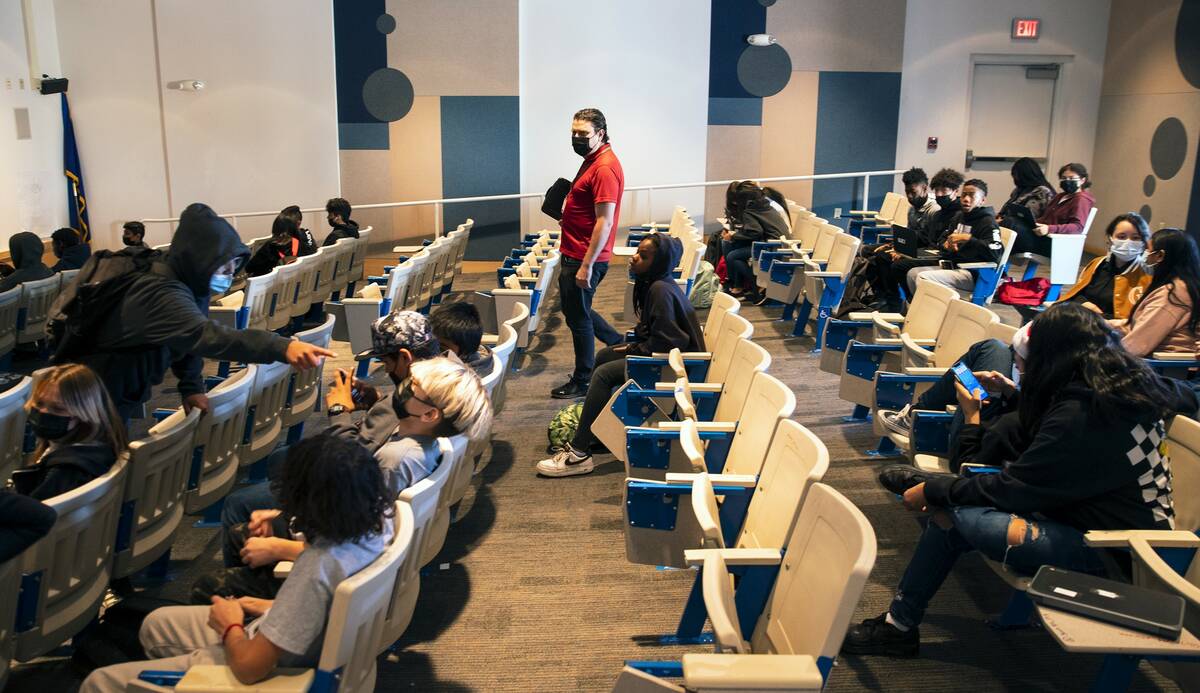Substitute teachers in Nevada may get health insurance subsidy under bill
A bill that would require school districts to provide its long-term substitute teachers with a $450 monthly subsidy to buy health insurance is heading to the governor’s desk.
On Tuesday, the state Senate voted 16-4 to pass Assembly Bill 282. The legislation previously passed the Assembly on April 25.
Athar Haseebullah, executive director of the American Civil Liberties Union of Nevada, worked with Assemblywoman Shondra Summers-Armstrong, D-Las Vegas, on the bill.
In a Tuesday statement, Haseebullah wrote that the teacher shortage has continued to grow and substitute teachers have become a lifeline to schools.
“It is long overdue that these community heroes are given basic access to health care,” he wrote.
If signed into law, the legislation will affect more than 1,000 full-time substitute teachers statewide — about 800 of whom are in Clark County. To qualify, substitutes must teach 30 or more consecutive instructional days.
Haseebullah wrote Tuesday it’s “absolutely ridiculous” that the state’s two largest districts, Clark and Washoe counties, opposed the bill.
“We thank Assemblywoman Shondra Summers-Armstrong for championing this cause and bringing this piece of legislation forward and look forward to seeing the governor demonstrate his commitment to these educators who continue to fill gaps full-time without support,” he wrote.
The Clark County district already provides health insurance coverage to some long-term substitutes. In order to qualify, employees must work an average of 29.5 hours per week over a year to enroll during the following calendar year.
The district told the Las Vegas Review-Journal last month that substitutes are essential to ensuring students receive instruction, but the bill places an “undue and unfunded burden” on school budgets.
“The state health exchange has subsidies available for Nevada residents who do not qualify for health coverage through their employer,” the district said in a statement. “Additionally, the bill would allow for individuals to collect subsidies for an entire year while only working select days.”
The district estimates it will cost $3.3 million annually to provide a subsidy, along with additional staffing costs.
Contact Julie Wootton-Greener at jgreener@reviewjournal.com or 702-387-2921. Follow @julieswootton on Twitter.























